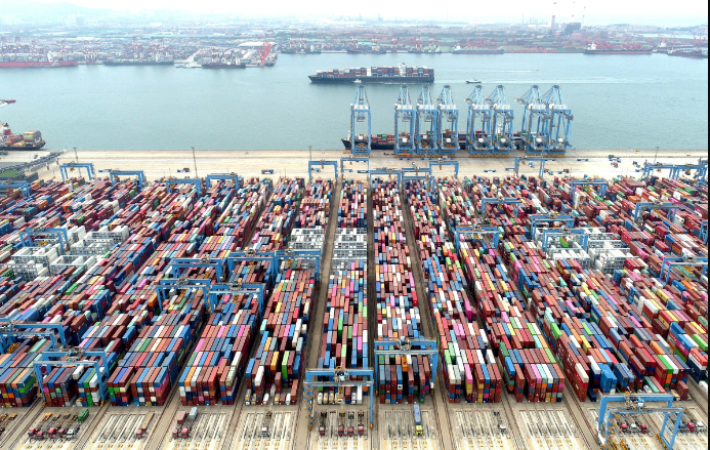
Beijing: China's exports experienced their slowest growth in 17 months in June, with a 17.9% year-on-year increase, down from 18.1% in May. The consecutive three months of decelerating export growth indicate a challenging period for the world's second-largest economy, with multiple factors contributing to the decline.
The first major factor influencing the slowdown is the ongoing global economic deceleration. As the global economy faces a slower growth trajectory in 2023, the demand for Chinese goods has dipped, affecting the export sector. The ripple effects of this trend could impact countries heavily reliant on Chinese exports.
Moreover, the prolonged trade tensions between China and the United States have also played a significant role in dampening China's export growth. The trade war, which has been ongoing for several years, has led to increased tariffs and trade restrictions, resulting in reduced demand for Chinese goods in the US market.
Also Read: Sunak slams EU for 'regrettable' Falklands reference
Furthermore, the Chinese government's deliberate tightening of monetary and fiscal policies to rein in the economy has had a negative impact on exports. As part of their measures to control inflation and asset bubbles, the authorities' focus on cooling down the domestic economy has inadvertently affected export performance.
The slowdown in China's exports is a cause for concern not only within the nation but also for the global economy. As China is a major exporter, its economic slowdown is likely to have a ripple effect on other countries, affecting their trade balances and economic performance.
Analysts are closely monitoring the situation, as the duration of the slowdown remains uncertain. The Chinese government's response and potential adjustments to economic policies could influence the trajectory of export growth in the coming months.
Also Read: AUKUS deal in limbo as Republicans block submarine sale, demand more military spending
In response to these challenges, experts are urging policymakers to consider measures that promote domestic consumption and seek alternative export markets to offset the impact of reduced demand in traditional trading partners.
As the global economic landscape continues to evolve, nations must be vigilant in navigating the headwinds caused by factors beyond their control. Collaborative efforts and strategic planning will be essential to ensure resilience and stability in an interconnected global economy.